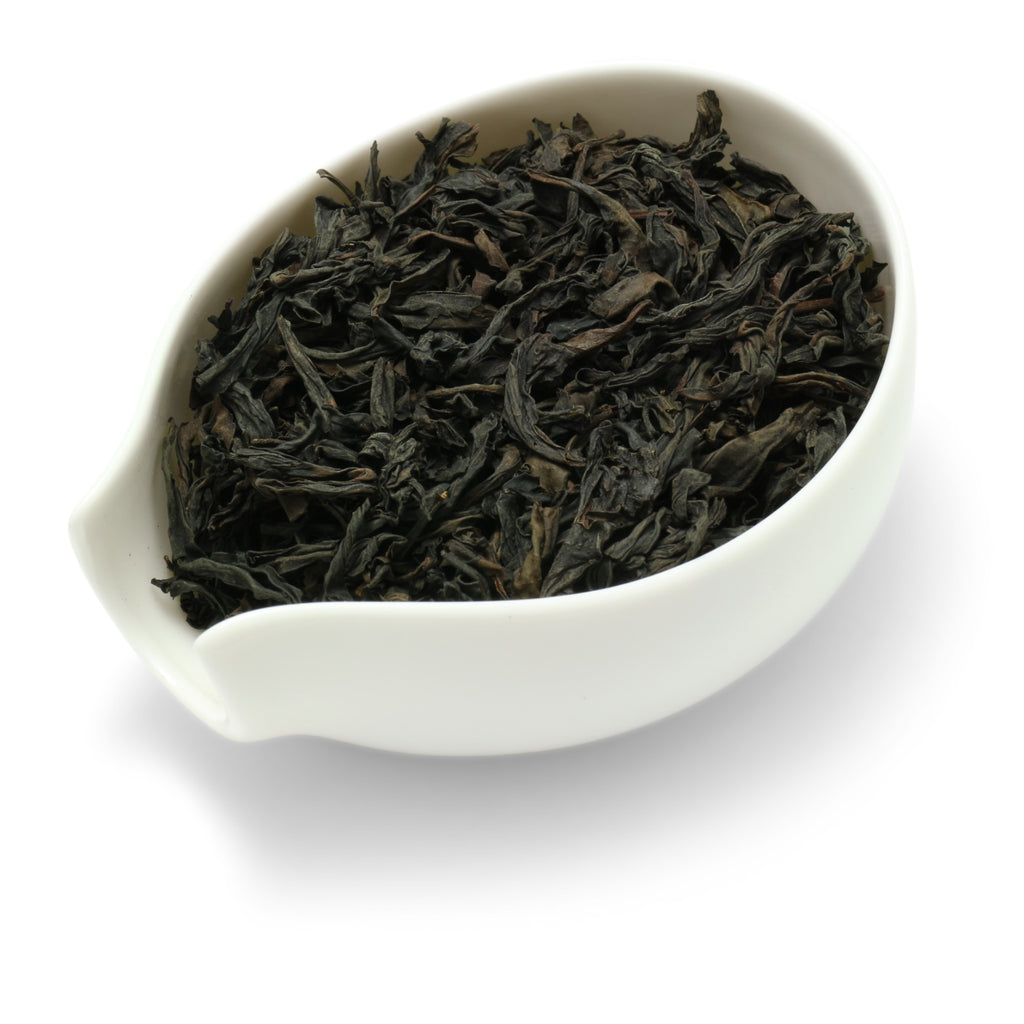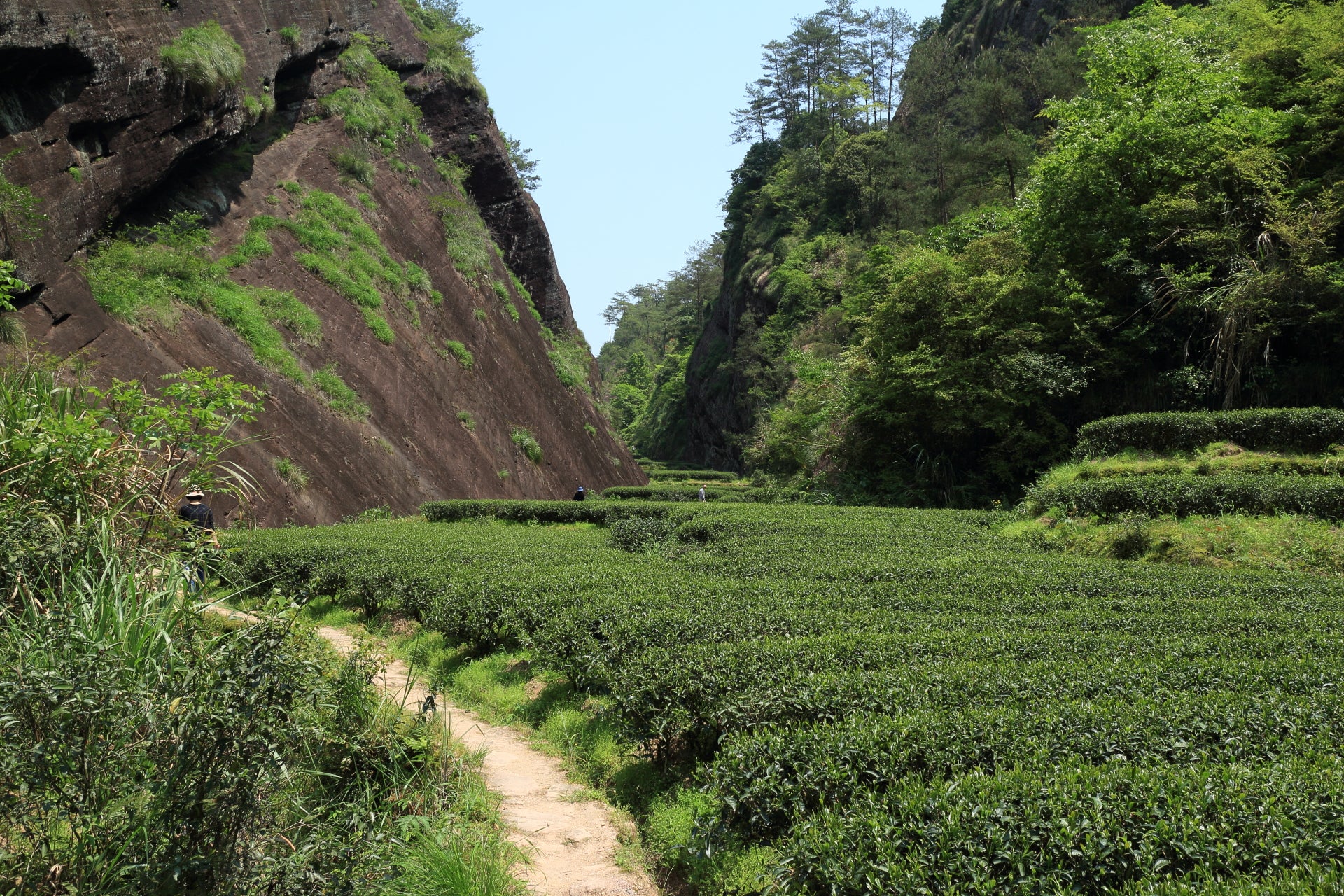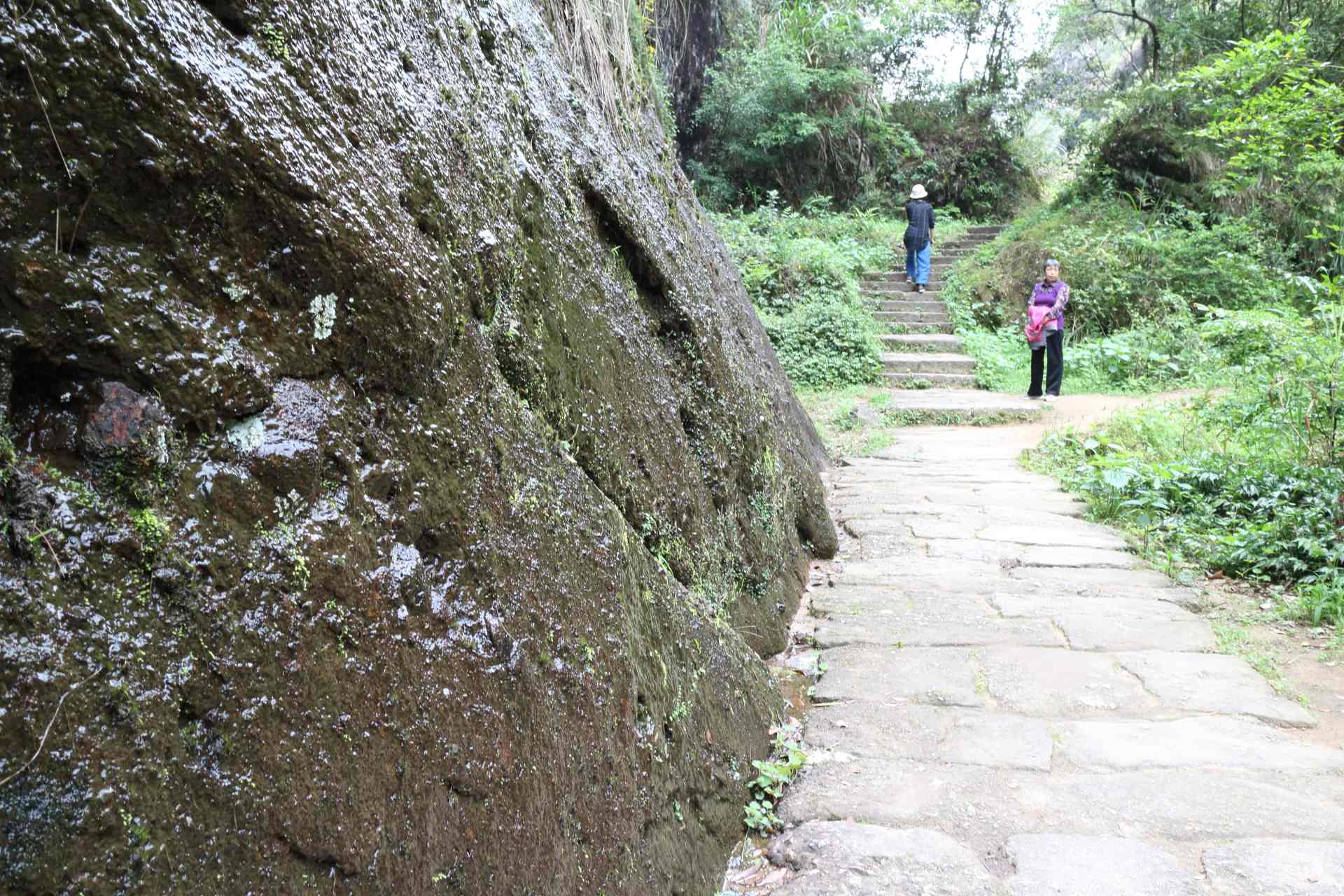Qi Lan 2020
Surprisingly tart, the dried leaves of this Qi Lan greet the nose with a fairly mild scent…a touch of grilled peaches. It seems its careful oxidation and threefold roasting has been perfectly calibrated—present but not dominant—allowing the liquor to express a beautiful balance of fruit and florality in viscous texture. Several infusions follow, and peach gives way to apple, and an anethole sweetness on the edge of the tongue. Grown at the heart of Wuyishan in the "zheng yan" area of Liang Hua Feng (Lotus Peak), it has had its prized terroir enhanced by masterful processing for a yan cha of sheer delight.
Wuyi Yan Cha – the tea from the rocks
Wuyi Yan Cha, aka Wuyi Rock Tea or, more properly, Cliff Tea, is an ancient oolong tea (one of the six tea categories, halfway between green and black teas). Produced in northern Fujian province, yan cha are complex teas, with their typical mineral savour sharing the field with the strength from roasting and delicate floral and fruity hints.
- ORIGIN: Lianhua Feng, Wuyishan, Nanping, Fujian, China
- MEANING: Rare orchid (qí lán)
- CULTIVAR: Qi Lan
- HARVEST TIME: 25 April 2020
- TASTE: Apple, cooked peach, anise
- ROASTING: Thrice (last on 1 December 2020)
- Quantity: 6g / 500ml
- Water temperature: 90°C
- Infusion time: 5 min
- Quantity: 3g / 100ml
- Water temperature: 90°C
- 4 infusions: 45, 45, 60, 90 sec
For best results in gongfu cha, brew in the traditional gaiwan or in a Yixing teapot. Too high water temperature would burn the leaves, resulting in bitter taste.
Additional Information
Authentic Wuyi Yan Cha is produced in the Mount Wuyi region, a UNESCO natural heritage site. The dramatic gorges of the Nine Bend River are surrounded by a largely intact subtropical forest and smooth cliffs of black-brownish rocks. The tea plants grow in narrow valleys next to the cliffs in a mineral-rich soil.
Today Wuyi Yan Cha is one of the most valued teas in China. Because it has become a status symbol, many wealthy Chinese are willing to pay a fortune for it without even knowing how a proper Wuyi Yan Cha should taste. The result has been prices inflating to unjustified levels and quality often sacrificed for quantity.
Unique to the Wuyi Yan Cha is a mineral savor coming from the soil and the surrounding cliffs. Being the oolong with the highest fire finish, fresh Yan Cha may as a result be strong and pungent. Sharpness and too-prominent astringency subside upon ageing. Premium high-fire Yan Cha tastes better after a few years of storage. Use a Yixing teapot to soften the tea, should it be too astringent for your palate.
The overall taste profile is rich, complex, and deep. Depending on cultivar and environment, the mineral-roasted flavor is refined by floral, fruity, nutty, or woody accents.










